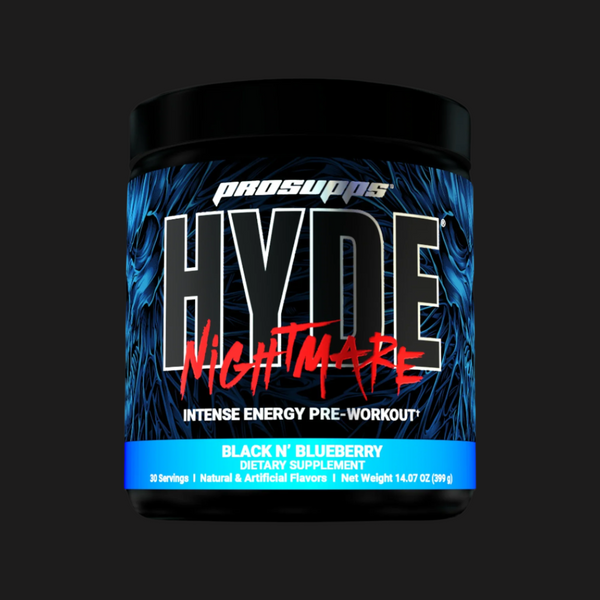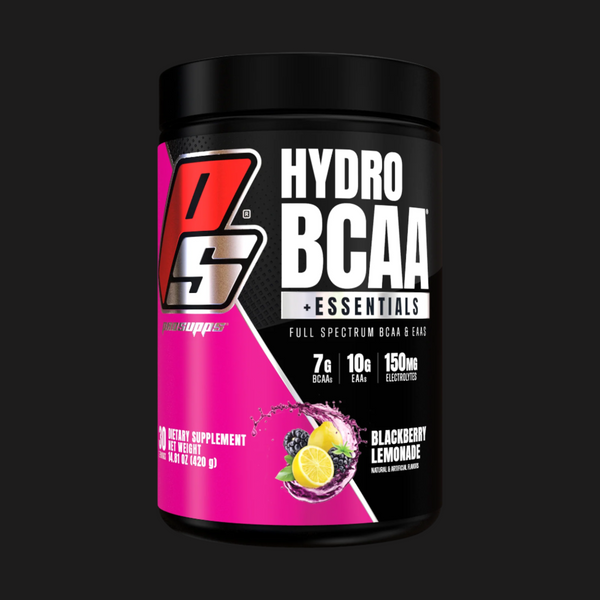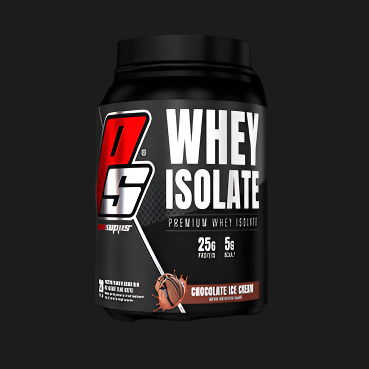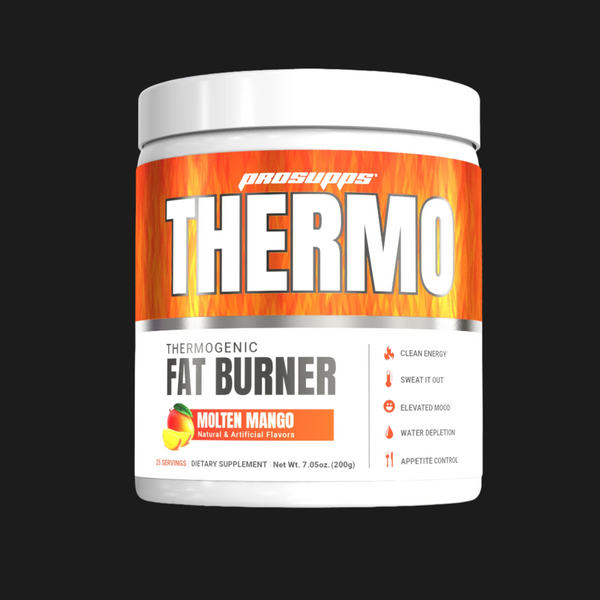
BCAA vs Creatine: Which Supplement is Right for You?
 Written by Pri Prunella
Written by Pri Prunella August 12, 2024
BCAAs (Branched-Chain Amino Acids) and creatine are two of the most popular supplements in the fitness world, each known for its unique benefits in enhancing muscle growth and athletic performance. Think of BCAAs as the building blocks that help repair and maintain muscle, while creatine is like adding extra fuel to your engine to boost its power.
This article will compare BCAAs and creatine, breaking down their benefits and uses to help you decide which supplement might be the best fit for your fitness goals. Whether you’re looking to improve endurance, increase strength, or speed up recovery, understanding these supplements can guide you toward making a more informed choice.
Understanding BCAAs
BCAA’s are essential nutrients that play a vital role in muscle metabolism and energy production.
What is BCAA?
BCAAs consist of three essential amino acids: leucine, isoleucine, and valine. These amino acids are crucial for muscle protein synthesis, the process by which your body builds and repairs muscle tissues. Leucine is particularly important for stimulating muscle growth, while isoleucine and valine help with energy production and muscle recovery.
Sources of BCAAs
Food Sources:
You can find BCAAs in high-protein foods such as meat, eggs, dairy products, soy, and quinoa.
Supplement Forms
BCAAs are also available in supplement form, such as powders, capsules, and drinks. These supplements offer a convenient way to increase your BCAA intake, especially during or after workouts.
Benefits of BCAAs
BCAAs offer several key benefits for athletes and fitness enthusiasts. These include promoting muscle growth, reducing muscle soreness, and enhancing recovery. Here’s a closer look at how BCAAs support these aspects of fitness:
-
Muscle Growth
BCAAs help stimulate muscle protein synthesis, contributing to increased muscle mass and strength.
-
Reducing Muscle Soreness
They can lessen muscle soreness and accelerate recovery after intense exercise, allowing you to train more consistently.
-
Enhancing Recovery
BCAAs aid in quicker recovery by reducing muscle breakdown and supporting repair processes, helping you get back to your workouts faster.
Understanding Creatine
To fully grasp how creatine enhances athletic performance and muscle growth, it’s essential to understand its role in energy production and its various sources.
What is Creatine?
Creatine is a naturally occurring compound found in the muscles and brain, playing a crucial role in the production of ATP. ATP is the primary energy carrier in cells, providing the energy needed for muscle contractions and various cellular processes. During high-intensity activities, creatine helps rapidly regenerate ATP, allowing for sustained muscle performance and enhanced energy supply.
Sources of Creatine
Food Sources
-
Meat: Beef, pork, and other red meats are rich sources of creatine.
-
Fish: Salmon, tuna, and other types of fish provide substantial amounts of creatine.
-
Dairy: Some dairy products contain creatine, albeit in smaller quantities compared to meat and fish.
Supplement Forms
-
Creatine Monohydrate: The most common and widely researched form of creatine, known for its proven effectiveness, purity, and support in muscle growth retention!
-
Creatine Hydrochloride (HCL): Known for its high solubility, it requires a smaller dose compared to creatine monohydrate and is easier on the stomach.
-
Buffered Creatine (Kre-Alkalyn): This form is designed to have a higher pH level, making it more stable and reducing the breakdown of creatine in the stomach, which may lead to better absorption.
-
Liquid Creatine: A pre-dissolved form of creatine that is convenient to take, though it is less stable and may degrade quickly, making it less effective over time.
Benefits of Creatine
From boosting strength and power to improving muscle endurance and recovery, creatine has many advantages. Here are a few:
-
Increasing Strength
Creatine supplementation has been shown to significantly enhance muscle strength, making it popular among athletes and bodybuilders.
-
Power Output
By improving ATP availability, creatine boosts power output during high-intensity activities, such as sprinting and weightlifting.
-
Enhancing Muscle Performance
Regular creatine use can lead to better overall muscle performance, increased endurance, and quicker recovery times, contributing to more effective workouts and greater gains in muscle mass.
Difference Between BCAA and Creatine
Understanding the differences between BCAAs and creatine is crucial for optimizing your supplement plan:
Chemical Composition
BCAAs (Branched-Chain Amino Acids): BCAAs consist of three essential amino acids—leucine, isoleucine, and valine—that the body cannot produce on its own and must be obtained through diet. These amino acids are integral to protein synthesis and muscle repair.
Creatine: Creatine is a compound derived from amino acids, specifically arginine, glycine, and methionine. It is synthesized in the body and stored primarily in the muscles, where it plays a role in ATP production.
Function in the Body
BCAAs: BCAAs are primarily involved in muscle protein synthesis, helping to build and repair muscle tissues. They also help reduce muscle soreness and fatigue, making them crucial for muscle recovery and growth.
Creatine: Creatine enhances energy production by increasing the availability of ATP, which is vital for high-intensity, short-duration activities. It boosts muscle performance, strength, and power output by providing a rapid source of energy during exercise.
Storage and Utilization
BCAAs: BCAAs are not stored in large quantities in the body but are readily available in the bloodstream for immediate use. They are directly absorbed into the muscles where they are utilized for protein synthesis and energy during exercise.
Creatine: Creatine is stored in the muscles as phosphocreatine and is used to regenerate ATP during high-intensity activities. The body has a limited storage capacity for creatine, and its levels can be increased through supplementation to enhance performance and recovery.
BCAA vs. Creatine: Which is Better for Muscle Growth?
When it comes to muscle growth, both BCAAs and creatine offer unique benefits, but their effectiveness can vary depending on your goals.
Direct Muscle Growth
BCAAs play a crucial role in direct muscle growth by promoting muscle protein synthesis and minimizing muscle breakdown. By reducing muscle protein breakdown and aiding recovery, BCAAs support the development of lean muscle mass, especially during intense training or calorie deficits.
Indirect Muscle Growth
Creatine contributes to muscle growth indirectly by enhancing workout performance and allowing for more intense and frequent training sessions. By increasing the availability of ATP, creatine enables you to lift heavier weights and perform more reps, which can lead to greater muscle hypertrophy over time. The improved performance and increased training volume from creatine supplementation ultimately result in more significant muscle gains.
BCAA vs. Creatine for Athletic Performance and Recovery
Choosing between BCAAs and creatine for enhancing athletic performance and recovery can impact your training outcomes. This is how each supplement supports performance during workouts and aids in recovery to understand which might better suit your athletic and recovery needs.
Enhancing Athletic Performance
Creatine: Creatine has an immediate impact on athletic performance by rapidly replenishing ATP, which provides a quick source of energy for high-intensity and explosive activities. This boost allows for improved strength, power, and overall performance during short bursts of effort, making it especially effective for activities like sprinting and weightlifting.
BCAAs: BCAAs enhance athletic performance by reducing muscle fatigue and maintaining energy levels during extended or intense exercise. They help lower the production of serotonin in the brain, which can delay the onset of fatigue and support sustained performance throughout longer training sessions.
Recovery Benefits
BCAAs: BCAAs aid in recovery by reducing muscle soreness and accelerating muscle repair. They help decrease muscle damage and inflammation post-exercise, leading to faster recovery and less discomfort, which can improve overall training frequency and effectiveness.
Creatine: Creatine supports recovery by replenishing muscle creatine stores and enhancing muscle hydration. It aids in reducing muscle cell damage and inflammation, which accelerates the repair process and shortens recovery time between workouts, allowing for more consistent training.
When to Take BCAAs vs. Creatine
Timing your BCAA and creatine intake can significantly impact your workout performance and recovery. Understanding the best times to take these supplements helps you maximize their benefits and achieve your fitness goals more effectively!
Timing for BCAA vs. Creatine
Timing for BCAAs
-
Pre-Workout: Take 30 minutes before exercising to enhance endurance and reduce fatigue.
-
During Workout: Sip throughout your session to sustain energy and minimize muscle breakdown.
-
Post-Workout: Consume within 30 minutes to support recovery and reduce soreness.
Timing for Creatine
-
Pre-Workout: Take 30-60 minutes before exercise to boost muscle energy and performance.
-
Post-Workout: Consume within 1-hour of exercise to replenish muscle stores and aid recovery.
| Supplement | Pre-Workout | During Workout | Post-Workout |
|---|---|---|---|
| BCAA’s | 30 minutes before | Sip throughout | Within 30 minutes |
| Creatine | 30-60 minutes before | x | Within 1 hour |
Check out our other suggested uses of creatine here.
BCAA and Creatine: Can You Take Them Together?
Combining these supplements can be a practical approach to maximizing your workout effectiveness and recovery, but it's important to ensure that your overall diet and training regimen are also aligned with your fitness goals. Below are key benefits of incorporating these supplements into your routine:
-
Enhanced Workout Performance: Combining BCAAs and creatine can offer complementary benefits. BCAAs aid in reducing muscle breakdown and improving recovery, while creatine boosts strength and power. Together, they can enhance overall workout performance and recovery.
-
Improved Muscle Growth: Taking both supplements can support muscle growth by addressing different aspects of muscle health—creatine enhances strength and power, and BCAAs help with recovery and reducing muscle soreness.
FAQs Related to BCAA and Creatine
What is the difference in benefits between Creatine vs BCAA?
Creatine and BCAAs (Branched-Chain Amino Acids) are both popular supplements, but they offer different benefits:
-
Creatine: Enhances muscle energy and strength by increasing the availability of ATP (adenosine triphosphate), which is essential for short bursts of high-intensity exercise. It helps in improving overall strength, power, and muscle mass. Creatine is particularly beneficial for activities like weightlifting and sprinting.
-
BCAAs: Consists of three essential amino acids—leucine, isoleucine, and valine—that play a key role in muscle protein synthesis and reduce muscle breakdown. BCAAs help in reducing exercise-induced fatigue, supporting recovery, and potentially preventing muscle loss during prolonged exercise or calorie deficits.
Should I use BCAA or Creatine for muscle growth?
Both BCAAs and Creatine can support muscle growth, but they do so in different ways:
-
Creatine is generally considered more effective for muscle growth because it directly increases muscle energy, allowing for more intense workouts and greater muscle gains over time. It helps in promoting muscle hypertrophy through increased strength and power.
-
BCAAs can be beneficial for muscle recovery and reducing muscle soreness, which can indirectly support muscle growth by allowing for more consistent training. They are also useful in preserving muscle mass during periods of calorie restriction.
References
-
Mero A. (1999). Leucine supplementation and intensive training. Sports medicine (Auckland, N.Z.), 27(6), 347–358. https://doi.org/10.2165/00007256-199927060-00001
-
Sharma, S., Zhang, X., Azhar, G., Patyal, P., Verma, A., Kc, G., & Wei, J. Y. (2024). Valine improves mitochondrial function and protects against oxidative stress. Bioscience, biotechnology, and biochemistry, 88(2), 168–176. https://doi.org/10.1093/bbb/zbad169
-
Solon-Biet, S. M., Cogger, V. C., Pulpitel, T., Wahl, D., Clark, X., Bagley, E., Gregoriou, G. C., Senior, A. M., Wang, Q. P., Brandon, A. E., Perks, R., O'Sullivan, J., Koay, Y. C., Bell-Anderson, K., Kebede, M., Yau, B., Atkinson, C., Svineng, G., Dodgson, T., Wali, J. A., … Simpson, S. J. (2019). Branched chain amino acids impact health and lifespan indirectly via amino acid balance and appetite control. Nature metabolism, 1(5), 532–545. https://doi.org/10.1038/s42255-019-0059-2
-
Alberts B, Johnson A, Lewis J, et al. Molecular Biology of the Cell. 4th edition. New York: Garland Science; 2002. How Cells Obtain Energy from Food. Available from: https://www.ncbi.nlm.nih.gov/books/NBK26882/
GET LEAN
 Why You're Struggling
Can't Lean Out? Here's Why You're Struggling
Why You're Struggling
Can't Lean Out? Here's Why You're Struggling
We all know the feeling. You’ve been working hard in the gym, sticking to your diet and getting in your...
 Weight Loss
Choosing the Best Protein Powder for Weight Loss
Weight Loss
Choosing the Best Protein Powder for Weight Loss
Struggling to shed body fat and lean out? You might need to focus more on your nutrition, specifically your protein...
 Weight Loss
9 Ways to Speed Up Your Weight Loss and Burn More Fat
Weight Loss
9 Ways to Speed Up Your Weight Loss and Burn More Fat
Weight loss is a major goal for more than 40 percent of Americans. Is it something you’re working toward, too?
 Workout Routine
10 Tips for Building a Sustainable Workout Routine
Workout Routine
10 Tips for Building a Sustainable Workout Routine
Starting a fitness journey is an exciting time, but maintaining a sustainable workout routine can be challenging. From setting realistic...






































